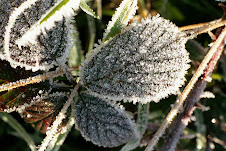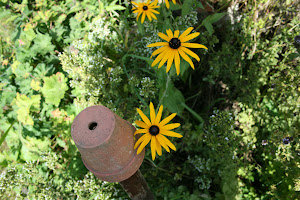The so-called "time-poor, cash-rich" equation has thrown up some interesting food innovations.Ready-sliced carrots. Broccoli florets. Diced onion. Celery sticks. Ready-mixed stir-fry ingredients.
And, of course, the bagged salad. This is the big one as far as supermarkets are concerned: a veritable green goldmine. In the UK, the market analyst TNS estimated that the market for bagged salads stands at over £256m (some estimates put it much higher), and that 69 per cent of British households buy them, on average, once a month. What is more, bagged-salad sales are growing at seven per cent a year. The two biggest sellers are Tesco and Sainsbury's, with the other supermarkets coming up behind. It's a similar success story in the US, where the bagged-salad market is estimated to be worth $1.2bn per year.
Unless you stick to the basic lettuce, salad can be expensive .
If you think you can pay anything between 99p and £2 for a bag of nice salad leaves that’s a lot of cash.
We are going through at least 3 a month. So that’s £6 month on salad!
Consider that It costs about £1.20 for a packet of mixed leaves, and that should last us the whole summer, maybe longer if grown under cover.
No garden ? Then a window box can supply you with salad throughout the Summer.
It is so simple to grow your own salad leaves, it will save you pounds on buying herbs and salad from the supermarket, and if you get the kids involved they will learn the basics of plant biology too! And best of all, if you grow organically, you can eat safely without paying over the odds.
Apart from the obvious finacial saving to be made , buying supermarket salad bags raise concerns regarding other costs; the use of pestiicides , explotation of poorly paid migrant workers , surface residues of chlorinated compounds from washing, ,high scores on food miles, packaging and reduced vital nutrients in the leaves salad!!
To grow your own salad on a windowsill :
Salad leaves don't need very much depth of compost.
I grew them on seed trays, but you could use anything so long as it has drainage holes (and a tray for drips underneath).
A good starter is to buy a packet of mixed salad seeds that, once grown can be cut and they grow again so you get salad all summer from a few plants. Sow at two weekly intervals from March to July for a continuous supply, sprinkle thinly and then no thinning will be needed, just harvest as required.
Varieties to try:
Bijou: Usually grown as a cut and come again lettuce and has lovely dark reddish-purple leaves. Lambs Lettuce: small tender green leaves that can be picked as a whole rosette or individually as a cut and come again crop.
Salad bowl: grows with curled leaves which add an interesting look to your salad, pick regularly and the plant will be productive for weeks.
Rocket: A trendy leaf with a spicy, tangy flavour, is a tasty addition to a mixed salad.
Super market salad bags : From plot to plate
Seeds are planted in UK farms or, out of the normal growing season, in intensive farms in Spain, Portugal and, to a lesser extent, Africa, clocking up hundreds of food miles by the time they reach your table.
The leaves take a couple of weeks to grow. During the colder months, they are grown in polytunnels, which blight the landscape and contribute to global warming.
The intensive-farming environment, and the supermarket consumer's expectations of "perfect" leaves mean that multiple pesticides need to be liberally used.
The salad is (usually) washed in chlorinated water to take away traces of earth and any bacteria or contaminants.
The leaves are cut, sorted and packed, often by cheap, casual (largely migrant) labour, and often in harsh conditions.
The salad is bagged in modified-atmosphere packaging, using altered levels of carbon dioxide and oxygen. This can keep it looking fresh for up to 10 days
It is then freighted to British supermarkets and sold
Use of pesticides.
‘Lettuces have a two-and-a-half- to three-month growing period in Spain. They are sprayed every week with a mixture of fungicide and insecticide, except for the last two weeks. There is a lot of pesticide resistance, so the products we used last year were completely different to the ones we were using five or six years ago. Some of them are very toxic.
For example, we treat the lettuces with dithiocarbamates as a preventive They are very hazardous. Its most up-to-date figures (from 1999) referred to outdoor salad crops receiving an average of four insecticide sprays, two fungicide applications and two herbicide doses; lettuces grown indoors were treated with even more fungicides. 2001/2002 shows that the problem is continuing. Nearly one in five lettuces exceeded maximum residue levels, and 6 per cent contained pesticides not approved for use. An organophosphate banned in the UK was found in several samples, and at 10 times the EU-permitted level in one of them. pesticides on unborn children. Propamocarb, an insecticide that works on the nervous system in a similar way to organophosphates; and one contained residues of the endocrine disruptor vinclozolin, a substance not permitted for use in lettuces in the UK. Endocrine disruptors are chemicals that interfere with hormones, and are sometimes popularly called ‘gender-benders’.
Explotation of migrant workers “Sweatshop Salads”
The preparation and packing of fresh foods such as salad are now dependent on cheap, casual labour. That cheap labour is largely provided by migrant workers. The labour-intensive business of sorting, washing, cutting and packing leaves by hand could not be done without them. Many of them, however, are living in this country in appalling squalor. The scale of migrant labour in the food industry is much larger than anyone is prepared to acknowledge, and a very substantial proportion of that labour is being employed illegally.
Chlorine washes
leave surface residues of chlorinated compounds on lettuce, and because of this the process is banned in organic production. Some chlorinated compounds are known to be cancer-causing, but there appears to be little research on those left on foods treated with high doses of chlorine; the process having evolved in an ad hoc way.
But it is controlling bugs rather than preserving taste or nutrients that supermarkets are most concerned about. Fielder [adds]: ‘In a litigious society, and with the prospect of damage from bad publicity, no supermarket dares risk having listeria, E. coli food-poisoning bugs on the salad they sell.’
There appears to be good reason for supermarkets selling pre-washed salads to worry about bugs. Between 1992 and 2000, the period in which bagged salads took off, nearly 6 per cent of food-poisoning outbreaks in this country were associated with ready-to-eat salads and prepared fruit and vegetables. In 2000 two serious outbreaks of salmonella poisoning in the UK were traced back to lettuce. One person died as a result
Air Miles
Flown-in bagged salad also scores on food miles, and runs against the increasingly prevalent notion that we should eat according to season. Another aspect lies in the supermarkets and their tendency not to sell "loose" food. "Multiples have environmental- health considerations that mean that food is sold in packs," says Fogarty. "We have become slaves to convenience and have lost a respect for food."
Fresh , nutritious salad leaves?
Modified-atmosphere packaging (MAP) can extend the shelf life of prepared salad by more than 50 per cent, making it possible for supermarkets to sell washed and bagged salad from around the world.
Dried and sorted before being packaged in pillows of plastic in which the normal levels of oxygen and carbon dioxide have been altered. Typically in MAP, the oxygen is reduced from 21 per cent to 3 per cent and the CO2 levels correspondingly raised. This slows any visible deterioration or discolouring. The salad is then trucked to a supermarket’s distribution centre, where it will be dispatched for delivery to individual stores. MAP keeps it looking fresh for up to 10 days. Some lettuces imported from the US can be kept fresh for up to a month!
research published in 2003 in the British Journal of Nutrition suggested that MAP might actually destroy many of the vital nutrients in salad.The researchers noted that several antioxidant nutrients (which protect against ageing, degenerative disease and cancer) such as vitamin C, vitamin E, polyphenols and other micro-nutrients, seemed to be lost in the MAP process.
























